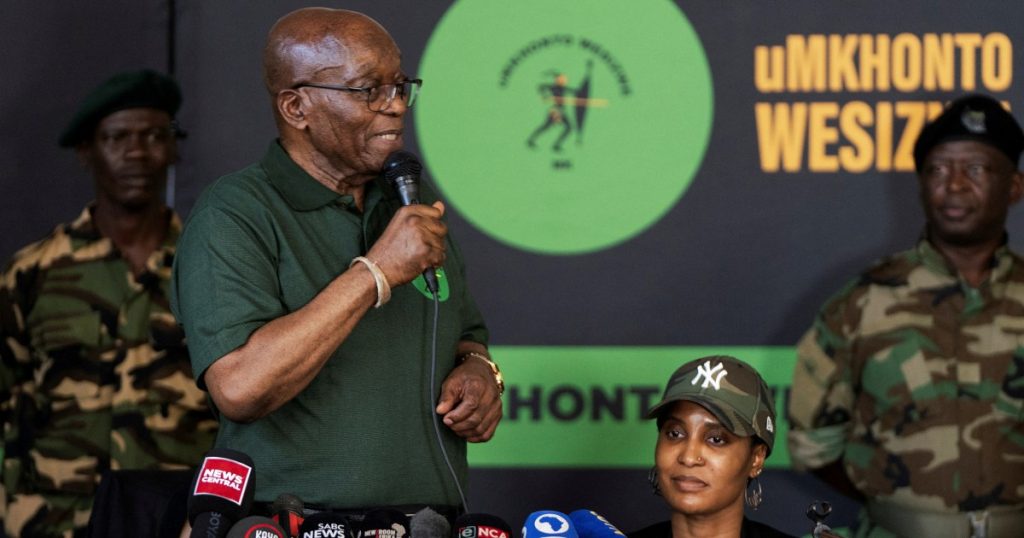Former South African President Jacob Zuma has had a long and controversial political career, with multiple legal challenges and scandals following him over the past two decades. From corruption and rape charges to a questionable relationship with the Gupta brothers and state capture allegations, Zuma has faced numerous setbacks while maintaining a loyal following. Despite being barred from running in the upcoming elections due to a criminal conviction, the Electoral Court later overturned the decision, allowing Zuma to run for office under the uMkhonto we Sizwe (MK) party.
Zuma’s legal troubles began in 2005 when he was implicated in corruption charges involving bribes from a close associate and later faced rape charges, for which he was acquitted in 2006. Despite these setbacks, Zuma went on to win the leadership of the ANC in 2007 and became South Africa’s president in 2009. However, his presidency was marred by controversies, including the Zumaville scandal in 2013, where public funds were used to upgrade his home in Nkandla. Despite facing impeachment proceedings, Zuma was re-elected for a second term in 2014.
In 2017, Zuma’s close ties to the Gupta family came under scrutiny, with allegations of state capture and corruption overshadowing his presidency. Following mounting pressure and a police raid on the Gupta residence, Zuma resigned in February 2018, paving the way for Cyril Ramaphosa to become president. However, Zuma’s legal troubles continued, culminating in a 15-month prison sentence for contempt of court in 2021. Despite violent protests erupting in response to his imprisonment, Zuma was released on medical grounds after serving just two months.
In 2022, following further legal battles, Zuma was imprisoned once again, only to be released under a government amnesty programme meant to ease prison overcrowding. Zuma’s disdain for the ANC led him to denounce the party and offer support to the MK party, a new political entity he aligned with. Despite being suspended by the ANC and facing legal challenges, polls indicate that the MK party poses a significant threat to the ANC in the upcoming elections, with Zuma leveraging his political capital to frustrate the ruling party and President Ramaphosa.
While Zuma cannot constitutionally run for president under the MK party or any other due to term limits, his influence within certain provinces, particularly KZN, may impact the election results. With recent polls showing strong support for the MK party in KZN and Gauteng, Zuma’s political comeback remains a possibility, even if his aspirations for a presidency are unlikely. As the election approaches, the political landscape in South Africa is rife with tension and uncertainty, with Zuma’s return to the political arena adding a new level of complexity to the situation.













